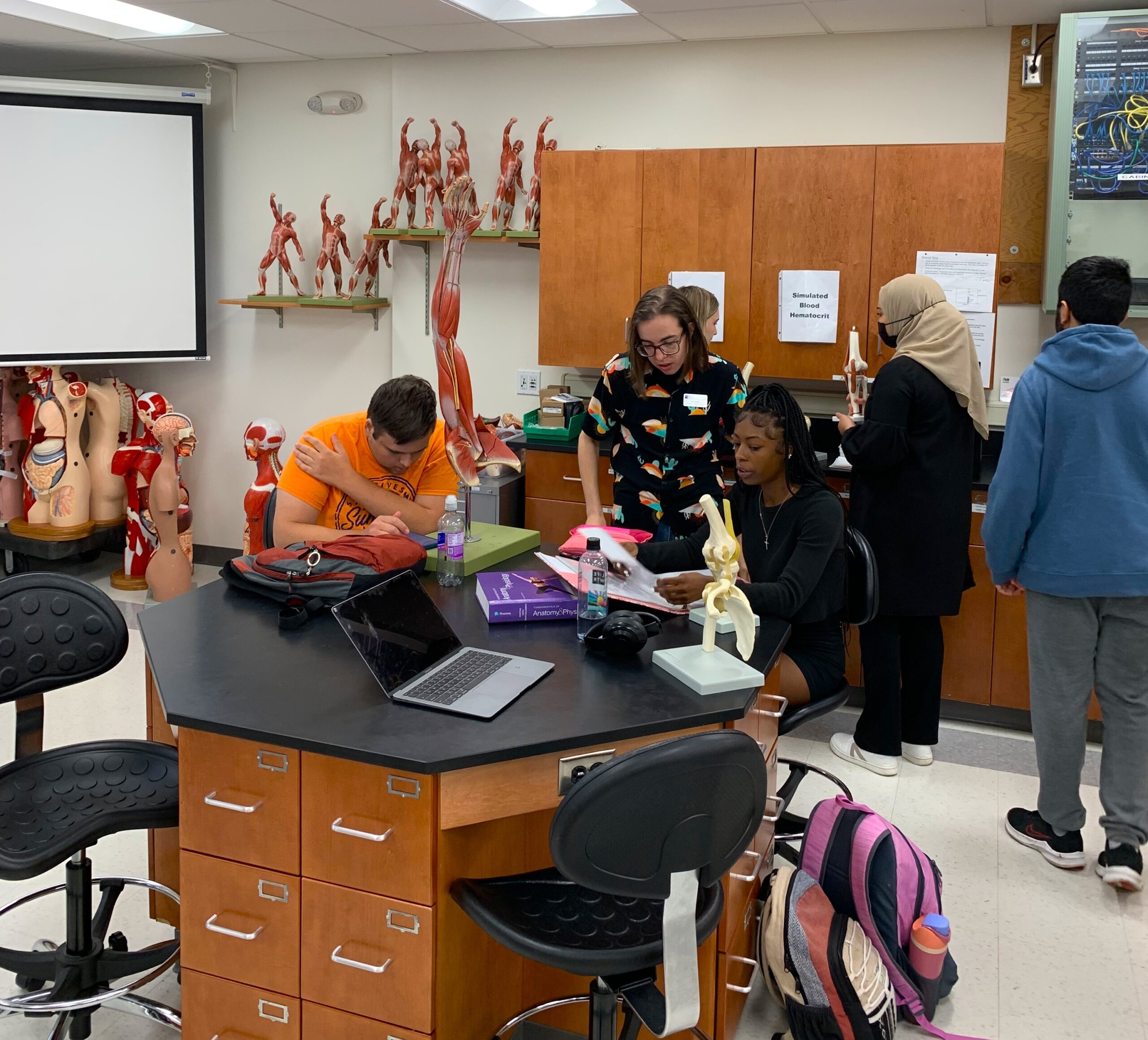A Q & A with three members of STLCC’s Veterans
BY: EMILY WEBER
Staff Writer

Veteran’s Day is fast approaching, and Meramec will once again host the traditional rasing of the flag on Friday, Nov. 11 outside the Communication South and Business Administration buildings.
Ahead of the festivities, members of STLCC’s Veteran’s Affairs and other veterans across the college spoke with The Montage to share their stories. They include: George Herrera, the district manager of STLCC’s Veteran’s programs; Stephanie Leonard, the Assistant Coordinator; and Ryan Cody, a STLCC student and club member.
Q: What branch of the military did you serve in?
George Herrera: [The] US Marine Corp.
Stephanie Leonard: [The] United States Army.
Ryan Cody: [I am] currently a part of the Army National Guard.
How long did you serve?
Herrera: 14 years
Leonard: 24 years. [I] retired as a chief warrant officer.
Cody: It was 12 years [as of] October 28th.
What was your rank?
Herrera: [I was a] Petty Officer 1st class with hospital corpsman, and a combat medic.
Leonard: [I was a] noncommissioned officer when served in Iraq in 2003, [and a] sergeant first class when I served in Iraq.
Cody: [I am] a Staff Sergeant. I am the section Sergeant for a section of bordermen, so I oversee their training, their certifications and when we are in the field, I run the tactics and the direction of fire so where to aim the mortar system, trajectory, making sure targets are hit.
What prompted you to join? Herrera: My dad was in the service for 23 years in the United States Air Force and he retired as a chief master sergeant.
Leonard: Because I wanted a challenge.
Cody: I didn’t like where my life was and I thought maybe that could help fix it or at least give me the opportunities to.
What advice would you have for someone who is thinking about joining?
Herrera: Plan your exit strategy before going in because during the time while you’re in service, the military is going to get everything they want out of you.
Leonard: Being that I already had a civilian job and maintained my civilian job as a reservist, my advice is a little different. So my advice, I’m actually
going to segregate what I say. First of all, I would like to say as a woman, as a female soldier, I would not advise women to go into the military at this time. It is full of too much sexual harrasment and far too much sexual assault almost on a pandemic degree. So I would not recommend women going into the military at all, unless they already have classes in self- defense and know how to advocate for themselves as it pertains to sexual assault and sexual harrasment. The advice I would give a male soldier is to own your own career.
Cody: Look at where life is and see if you can benefit from it. Evaluate the branches and the style of activity you want to do, if it’s active duty or if it’s a reserve/national guard component and see what works best for you, look at the benefits that are available because there are some phenomenal ones: the veteran’s home loan, school benefits, retirement, health insurance.
How did you stay in touch with people back home?
Cody: When I was overseas, luckily it was an established base so there was internet more often than not. So I used a free Wi-Fi communication app to stay in touch with my wife through text and phone calls every once in a while.
Are there any notable accomplishments that you’d like to share?
Herrera: [I was] the youngest person at the time to earn a pinned fleet marine war force qualification.
Leonard: [I was] the first woman in the state to receive the Bronze Star Medal for the service in Iraq, [and] the first woman to graduate from the National Guard.
What are some of the things you do around campus?
Leonard: Here at Meramec we are well known for doing our flag raising. Veterans are so much more than raising the flag. Veterans are known for the service of which they joined to serve for the country and for the people who are serving in other countries or for the people back home. So what we wanna do is bring that same service back to our small community of St. Louis and have our veterans and along with their family members and along with any other club that would like to join us for some community service projects.
When was the club founded?
Herrera: The club has been around for a good ten years. Tracy Carpenter Bond helped get the program started throughout the district. Tracy Carpenter Bond passed away back in July of this year and she is the reason why we’re here.











